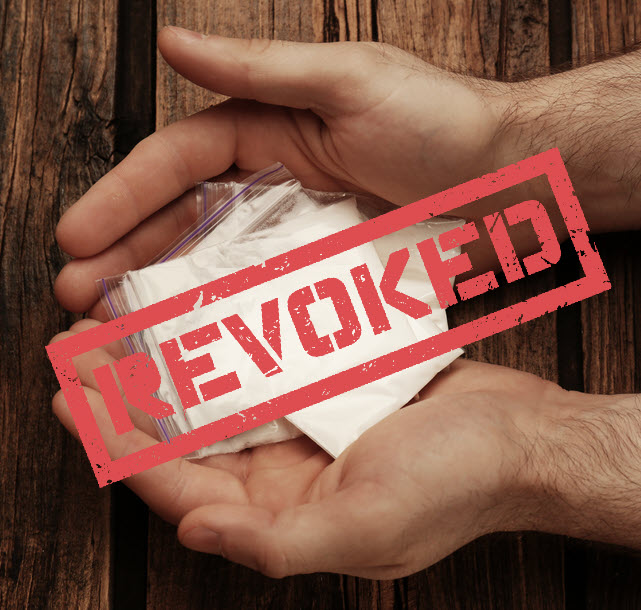
Canadian Cannabis Company Announces License to Sell Cocaine!
Adastra Labs, a Langley-based company known for its cutting-edge cannabis and ethnobotanical products, recently received approval for an amended license from Health Canada. This license permits the lawful possession, manufacture, distribution, and sale of a highly regulated substance.
Following British Columbia’s decriminalization of personal quantities of controlled substances, Adastra can now interact with up to 250 grams of cocaine and import coca leaves to manufacture and synthesize the substance.
As a leading manufacturer and supplier of innovative scientific products, Adastra Labs looks forward to continuing to explore new avenues in ethnobotany and beyond.
Prime Minister Justin Trudeau and BC Premier David Eby were surprised by Health Canada’s sudden approval. The Prime Minister expressed his surprise and said he was astonished by the announcement. He added that this decision was not included in the provincial plan and that Health Canada had not worked with the BC government prior to this move.
In response to the Prime Minister’s comments, Adastra Labs released a statement on Friday withdrawing all suggestions regarding current activities involving cocaine under its dealer’s license. The company emphasized that all future activities would only be carried out within the framework of the legal permission granted by the license and after consultation with the relevant state governments.
It is important to note that the dealer’s license obtained by Adastra does not permit the sale of coca leaf, psilocybin or cocaine to the general public. Instead, the license is limited to authorized distributors such as pharmacists, physicians, hospitals or Section 56(1) exemption holders for research purposes under the Controlled Drugs and Substances Act (CDSA).
To combat the ongoing drug overdose crisis that has resulted in the deaths of more than 11,000 British Columbians since 2016, the province has begun the process of decriminalizing up to 2.5 grams of drugs by January 31.
In Canada, possession, production, or sale of controlled substances is generally illegal unless approved for medical, scientific, or industrial use. Possession of cocaine is punishable by up to seven years in prison, while manufacture or trafficking is punishable by life imprisonment.
However, recent developments, such as the decriminalization efforts in British Columbia and the approval of Adastra Labs for legal possession, production and distribution of cocaine, indicate that drug regulation and harm reduction discussions are evolving and advancing.
The opposition leader in BC says the move is “legalizing the cocaine trade”.
In a recent statement, Adastra Labs confirmed that their amended license now allows them to “interact” with a maximum of 250 grams of cocaine and import coca leaves to manufacture and synthesize the substance.
CEO Michael Forbes emphasized that Adastra strives to remain at the forefront of drug regulation and explores innovative solutions to advance harm reduction. Forbes said the company was proactively monitoring the change in its dealer license to include cocaine in December 2022 and will evaluate how commercializing the substance fits into its business model to support demand for a safe supply.
Overall, Adastra Labs is dedicated to exploring innovative solutions to drug regulation and harm reduction challenges while maintaining a solid commitment to safety and compliance.
After approving Adastra Labs to lawfully possess, manufacture and distribute cocaine, Health Canada issued a statement reminding the company of the very strict criteria of their license. The statement warns that Health Canada will not hesitate to take action, including revoking the license, if strict requirements are not met.
The announcement of Adastra’s license change has also sparked controversy, with opposition leader Kevin Falcon criticizing the move during Question Time in the BC Legislature. Falcon argues that cocaine is not prescribed and is not a safe substance, and that its commercialization as a business opportunity amounts to legalizing the cocaine trade.
This debate underscores ongoing discussions about drug regulation and harm reduction in Canada. While some see Adastra’s license change as a step towards a safer supply of cocaine, others see it as encouraging the use of a harmful and illegal substance. The issue of drug regulation and harm reduction remains a complex and varied issue with many different opinions and viewpoints.
The BC Center on Substance Use has expressed uncertainty regarding Adastra Labs’ exemption for lawful possession, manufacture, sale and distribution of cocaine. Kevin Hollett, a spokesman for the agency, explained that they know “very little” about the exception and that the safe supply policy released in July 2021 focuses primarily on opioids.
Hollett acknowledged that he didn’t see how the cocaine exemption might fit into the policy of safe supply, if at all. This underscores the need for further discussion and clarification regarding the regulation and use of controlled substances in Canada, particularly as the country faces an ongoing drug overdose crisis.
Diploma
The issue of drug regulation and harm reduction is complex and multifaceted. As demonstrated by the ongoing drug overdose crisis in British Columbia and other parts of the world, current drug policy and enforcement approaches fail to address the root causes of drug addiction and the harms it causes.
Recent developments, such as British Columbia’s decriminalization efforts and the approval of Adastra Labs’ license change to include cocaine, indicate a changing perspective toward drug regulation and harm reduction. While these developments have been criticized and scrutinized, they also offer an opportunity to explore new and innovative approaches to drug policy that prioritize harm reduction and public health.
Going forward, policymakers, health professionals and communities must continue to engage in constructive dialogue and collaboration to develop evidence-based solutions that prioritize the health and well-being of individuals affected by drug addiction. By taking a compassionate and evidence-based approach to drug policy and regulation, we can work towards creating safer and more just communities for all.
COCAINE REGULATIONS, READ MORE…
The curious case of a cocaine derivative called [18F] FP-CIT

Post a comment: